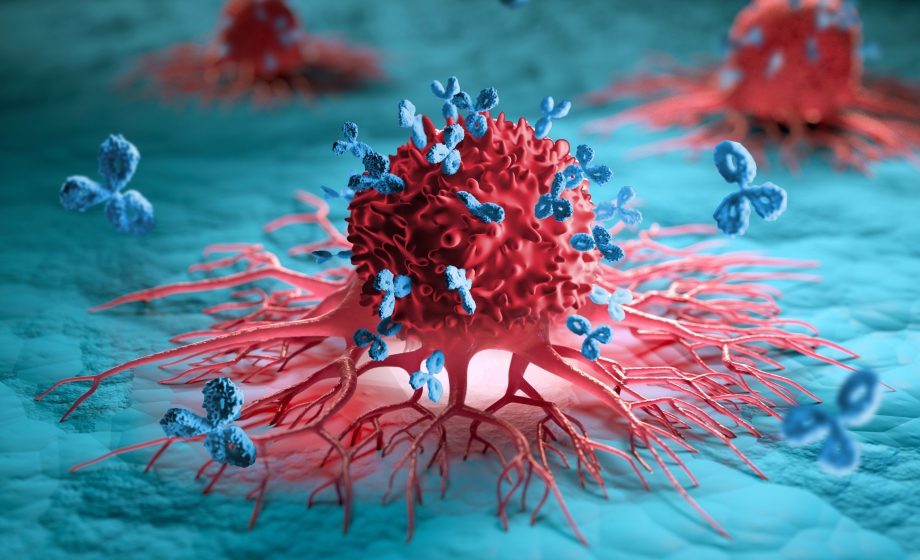Q&A Report: Overcome the Multiple Challenges of Neutralizing Antibodies in Cancer Therapy Using Innovative Phage Display Technologies

Answers to these questions have been provided by:
Conor McCartin, PhD
Account Manager
Monoclonal Antibody Development
ProteoGenix
What are the benefits of using phage display to generate mAbs compared to other techniques?
Apart from gaining access to fully human antibodies which I discuss in the presentation, another point is the ethical advantage of not having to use animals to obtain the antibodies, which is the case of other techniques, and of course the considerably faster turn-around time. It is also possible to pan against very toxic targets which would be impossible to inject into an animal. We also don’t have the issue of clone viability which we may have in hybridoma, where we might end up losing a good antibody producing clone.
What are the different libraries available for purchase at ProteoGenix?
We can sell all of our proprietary libraries, however as these are very high-quality libraries, the price is considerably higher than for the construction of your own library with us. The purchasing of our libraries would also come with licensing restrictions and payments for any sequences obtained for commercial use.
Do you offer solutions such as phage display kit, phagemid, helper phage and/or help on molecular workshop to handle libraries?
We absolutely do sell the libraries as a full kit including all of the reagents you listed, including instructions for use and the possibility of more advanced technical support should you need it to get the library up and running in your lab.
What type of antigen can I provide?
Theoretically anything soluble. The only stipulation is that small molecules and peptides must be conjugated to a protein carrier which facilitates coating so that the phages may be selected for.
Do we have to send you the antigen for panning in the projects?
For our panning projects, you can either send us the antigen of your choice or we can produce it as a recombinant protein ourselves, which is the case for a lot of our projects. If you need a peptide, then we can do the synthesis and necessary conjugation too.
How much antigen do I need to provide?
About 1mg of protein antigen is sufficient.
Do you provide guarantees on your phage display projects?
Yes! We can guarantee that you get one binder against your antigen at the end of the project, otherwise you pay only a part of the project fee.
Do you transfer the IP of the identified sequence binders?
Yes! The IP of the sequences obtained from a panning for our clients belongs to them 100%.
How fast can you perform a phage display project?
The standard time for a phage display panning is about 3-4 weeks, which is considerably faster than even a very quickly conducted hybridoma.
In your opinion, which bacterial strain is best suited for Ab phage display?
TG1 E.coli strain, as they are very electro-competent cells which have long pili that facilitate their infection by the phages.
How long does it take to produce mAbs?
From the moment we have the sequence to the production of recombinant antibodies takes roughly 4-6 weeks.
Do you offer custom library construction?
Yes! We can either carry out the construction of naïve libraries in camelid species, rabbit, mouse, rat, cat, or dog. Or we can immunise these animals against a target of interest before construction of the library so the library is pre-enriched against the targets of interest, giving a better and higher affinity repertoire with which to pan. And then of course, as mentioned in the talk, we can also construct libraries from any material that is provided to us by a client.
Is it possible to select antibodies against one specific protein but not against another protein?
Absolutely! So just as I talked during the presentation about carry out depletions against a ligand-receptor complex, if you require your antibody to recognise your target but not for example, a closely related protein, then we do depletions against this protein in order to remove the binders which are common between the two.
I am assuming that many customers may not want to share their IP with a CRO. How do you go about this?
We are well used to handling sensitive information of our clients, so with the necessary non-disclosure agreements in place, there is no reason for our clients to be worried about sharing information with us. Otherwise, we do of course operate on a need-to-know basis, asking only for information which is absolutely essential for the project, and sharing information internally only with people directly involved in the project.